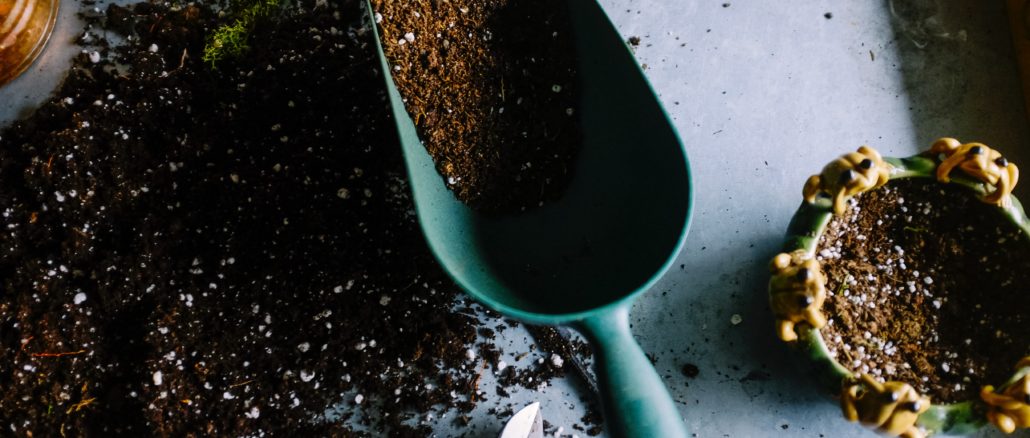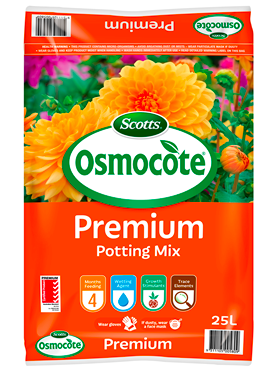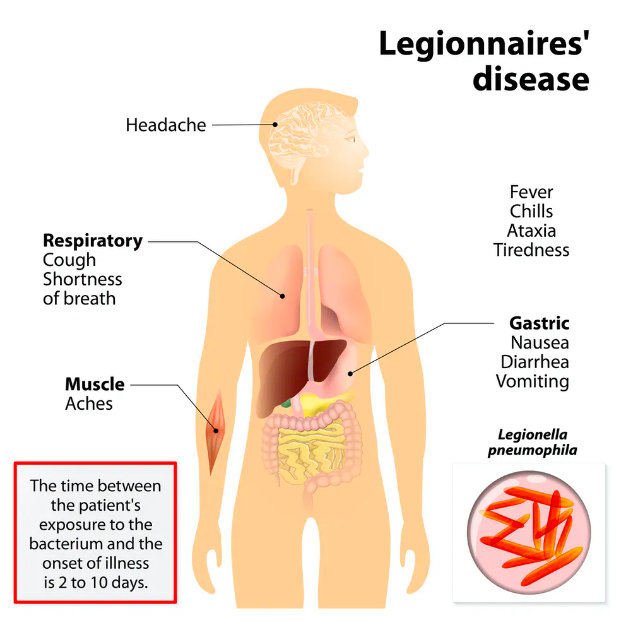
Slap bang in the midst of the COVID pandemic was not a good time to get a persistent cough but for Sandra it was pretty scary, even though she lived in relatively coronavirus-free Queensland.
She wasn’t a smoker, followed all the COVID protocols, went to the gym ….. and didn’t go to her doctor for seven months in the hope it would fix itself. It didn’t. In fact, it got worse.
Today, Sandra is under the care of a respiratory specialist, has “shadows” in both lungs, a hernia (from the coughing) and is on super-strong antibiotics.
All because the mother-of-two is a keen gardener and a year or so ago spent hours sitting on her deck potting succulents, flowers and veggies with locally bought potting mix.
She admits she ignored all the warnings on the bag such as wearing a mask and gloves when handling the potting mix and washing her hands when she finished before eating and drinking.
She certainly didn’t store her potting mix in a cool dry place and open the bags in a well-ventilated space, as the manufacturers recommend.
Now, she is battling Legionnaires’ disease, a form of pneumonia caused by the Legionella longbeachae bacteria.
Legionella longbeachae is different to Legionella pneumophila, the more well-known cause of Legionnaires’ disease found in poorly maintained cooling towers and spas.
Found in tiny quantities in the general environment (including soil) Legionella longbeachae is not normally a health hazard, however the ingredients and dampness of potting mix make it the ideal breeding ground for the bacteria.
Legionnaires’ disease can be fatal in a small number of people who have severe illness.
However, in an article published by The Conversation in 2018, Peter Collignon, Professor, infectious diseases and microbiology at the Australian National University, said while it was not surprising that the bacteria and fungi in potting mix may on occasion cause harm to people, and in rare cases even kill them, it was important to note that, overall, the risk was very low.
Small comfort for Sandra and the scores of others around Australia who each year contract Legionnaires’ disease from potting mix.
The Victorian Department of Health and Human Services was notified of 26 cases of Legionella longbeachae from 1 January to 30 October last year.
Back in 2006, Victoria’s Chief Health Officer Dr Robert Hall, who has studied the infection for many years was quoted as saying Legionella longbeachae, was “a natural organism that’s always in the environment – we can’t get rid of it. The bugs are needed in things like soil and potting mix to make plants grow, so what we have to do is to work out ways of handling the stuff safely.
“Legionella is a form of pneumonia. Technically it’s known as an atypical pneumonia. It is caused by a bug that gets into the chest, and causes fever, pains in the joints and muscles. It can cause diarrhoea and headaches. It can be tricky to diagnose and so it’s important to seek medical attention early, if these symptoms are not settling. Even with the best treatment people do die from the disease. Last year (2005) we had 153 cases in Australia and seven people tragically died,” Dr Hall said.
In 2017, Sydney father Jeremy Mitchell nearly died after contracting Legionnaires’ disease while potting plants with his 10-year-old daughter.
A few days after he started planting the garden bed the dad-of-two started feeling like he was coming down with something.
“I had sort of a fever and I thought, I’ve just got the flu,” Jeremy told 9NEWS.
As the 46-year-old got progressively worse – he went to emergency at Sydney’s Royal North Shore Hospital.
“The next thing I knew I was in intensive care, with 10 percent lung capacity and they said look we’re going to need to put you in a deep sleep, we’re going to have to put a tube down your throat and make you breathe,” Jeremy explained.
“I was supposed to be only under for two days and when I woke up, I realised it had been seven days.”
Jeremy had no idea that he needed to wear protective gear when using potting mix.
Testing revealed that the bacteria was traced back to a popular $8 bag of quality potting mix.
Most people who breathe in the bacteria do not become ill. However, the risk of disease is increased with age, smoking, and in people with weakened immune systems. People most at risk include those who:
- are usually older (over 65 years of age)
- smoke
- drink heavily
- have chronic lung disease
- have underlying medical conditions such as diabetes, cancer or kidney failure; or
- are immune-compromised e.g. from taking steroidal medications, undergoing chemo or radiotherapy.
The symptoms of Legionnaires’ disease usually begin to appear within six days of being exposed to the bacteria. Early symptoms are like the flu and include fever, chills, headache, shortness of breath, sometimes dry cough, muscle aches and pain.
Sometimes other systems in the body are affected. This can cause diarrhoea, mental confusion and kidney failure.
Gardeners can reduce the risk of contracting Legionnaires’ disease from soil, compost or potting mix, by taking the following precautions:
- Always wear a mask and gloves when handling soil, compost or potting mix.
- Wash hands carefully with soap and water after handling soil and before eating, drinking, smoking or placing hands near the face or mouth.
- Follow the manufacturer’s safety instructions on the potting mix bag.
- Store bags of potting mix in a cool dry place. When stored in the sunlight, the temperature inside the bag can increase, creating an ideal environment for Legionella bacteria to grow.
- Open bags in a well-ventilated space.
- Open bags of composted potting mix slowly, directing the opening away from the face to avoid inhaling the mix. Wet the soil to reduce dust when potting plants.
- Water gardens and composts gently, using a low-pressure hose.
- Avoid breathing in droplets of water from dripping pot plants, including hanging baskets, and when watering plants.
Anyone with concerns about their health, should seek medical attention.
Potting mix is usually warmer than soil, which makes it a better environment for bacteria and fungi to grow. from Simple safety provisions can protect us from harmful bacteria and fungi.
SheSociety is a site for the women of Australia to share our stories, our experiences, shared learnings and opportunities to connect.



Leave a Reply